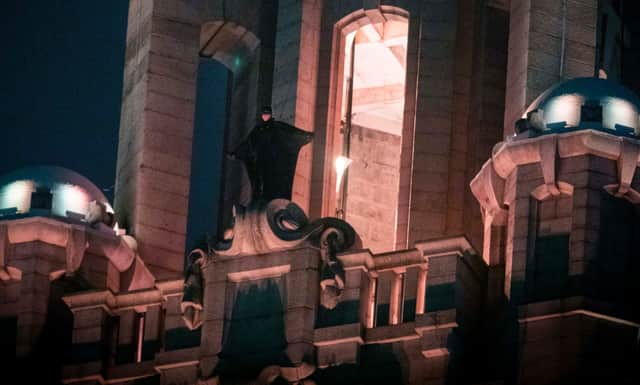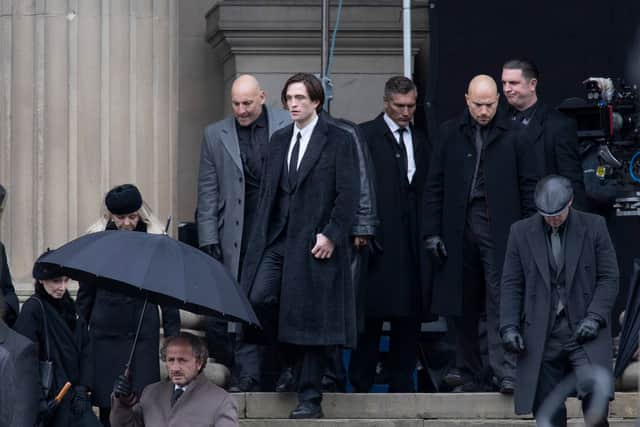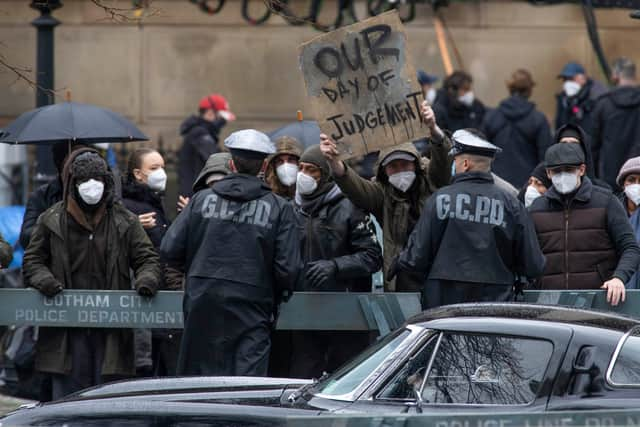Liverpool transformed into Gotham for The Batman - helps boost city economy by £18m


Filming major blockbusters like The Batman generated more than £18 million for Liverpool in the last 12 months.
Around 250 TV and film productions – including gritty small screen dramas and groundbreaking box office hits – were made in the city during 2021 despite the impact of COVID-19.
Advertisement
Hide AdAdvertisement
Hide AdIt is now the most filmed city in the country outside of London.
The Batman, starring Robert Pattinson, was released to critical acclaim in cinemas last week and major parts of the city were transformed into Gotham.


During shooting in October 2020, Batman stood atop the Liver Building as it was used as the Gotham City Police Department with helicopters circling above.
The Caped Crusader could also seen at Anfield Cemetery, while St George’s Hall was used as Gotham City Hall.


Advertisement
Hide AdAdvertisement
Hide AdLiverpool City Council highlighted the financial and employment benefits the TV and film industry brought to the city in a tweet following the release of The Batman.
However, councillor Anna Rothery was quick to suggest where the money should be reinvested tweeting: “Let’s take some of that money and use it to tackle knife crime before we actually become Gotham City.”
Film and TV finances for Liverpool
A report detailing the performance of Culture Liverpool in the last year has revealed how the city is riding the wave of film and TV production in the UK and is now the most filmed city in the country outside of London.
According to a breakdown of performance to go before Liverpool Council’s culture and visitor economy select committee next week, through the Liverpool Film Office (LFO), 1,100 filming days were held in the city during 2021, with production in the city said to have “flourished” despite the impacts of coronavirus.
Advertisement
Hide AdAdvertisement
Hide AdAttracting major blockbusters likeThe Batman brought in £18.7 million in inward investment – up 87% on the £10 million generated in 2020.
The number of shooting days in the city was also up by a fifth on last year.
Among the productions to make Liverpool their home included Dr Who, Funny Girl, Time, Help, The Responder, The Ipcress Files and Ambulance.
The report added: “This sustained activity throughout 2021 has generated revenue income to Liverpool Council of approximately £400k from paid for services and location fees achieved by the LFO.”
Advertisement
Hide AdAdvertisement
Hide AdIt said that production levels in 2021 during Covid constraints were in part largely sustained due to the performance of LCR Production Fund managed by the LFO with £2 million funding from the Liverpool City Region Combined Authority.
An independent interim evaluation of the fund’s performance indicated that it exceeded its outputs with £1.78 million invested into six productions to date leveraging approximately £12 million spent in the City Region creating approximately 455 full time equivalent jobs throughout the pandemic.
As revealed last week, more than £2.7 million is being made available by Liverpool Council to 27 organisations across the city as part of its Culture and Arts Investment Programme (CAIP) after authority leaders signed off on the proposals to extend the scheme for another 12 months.